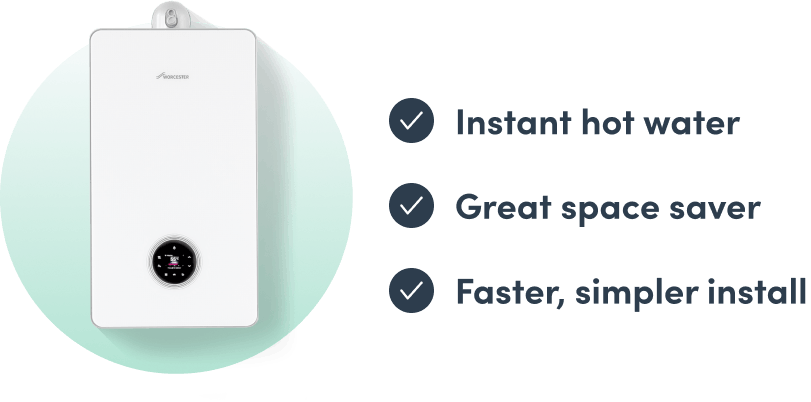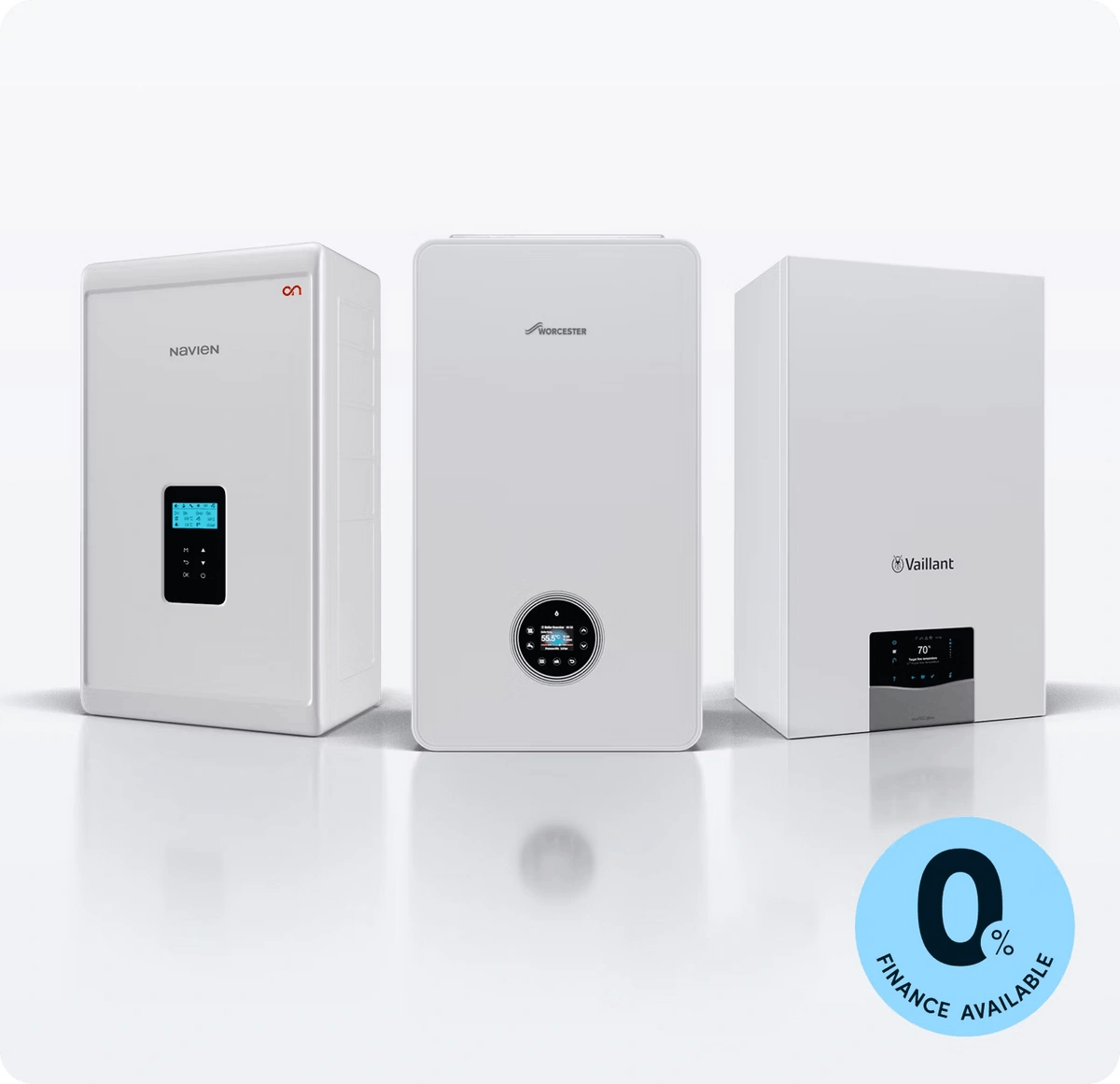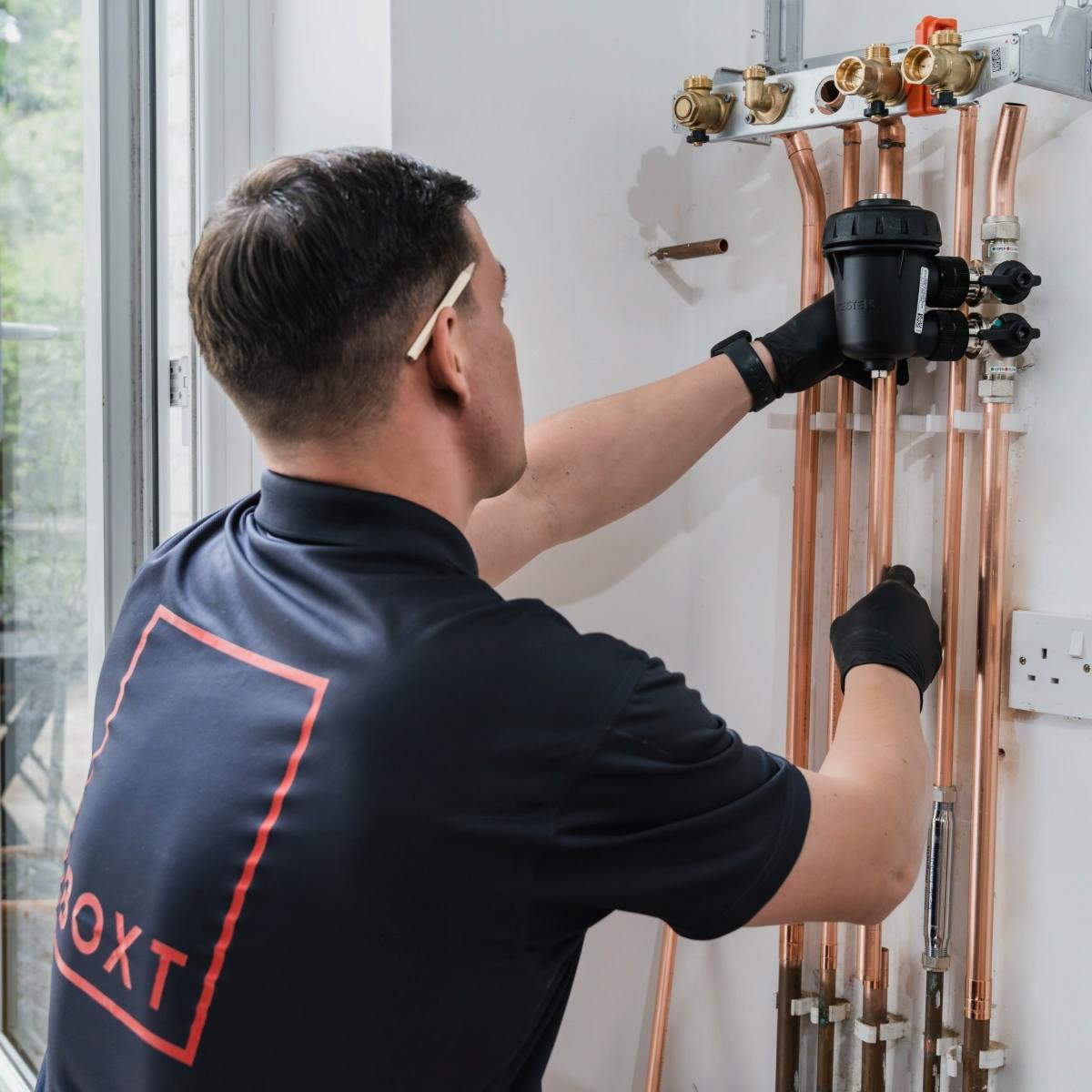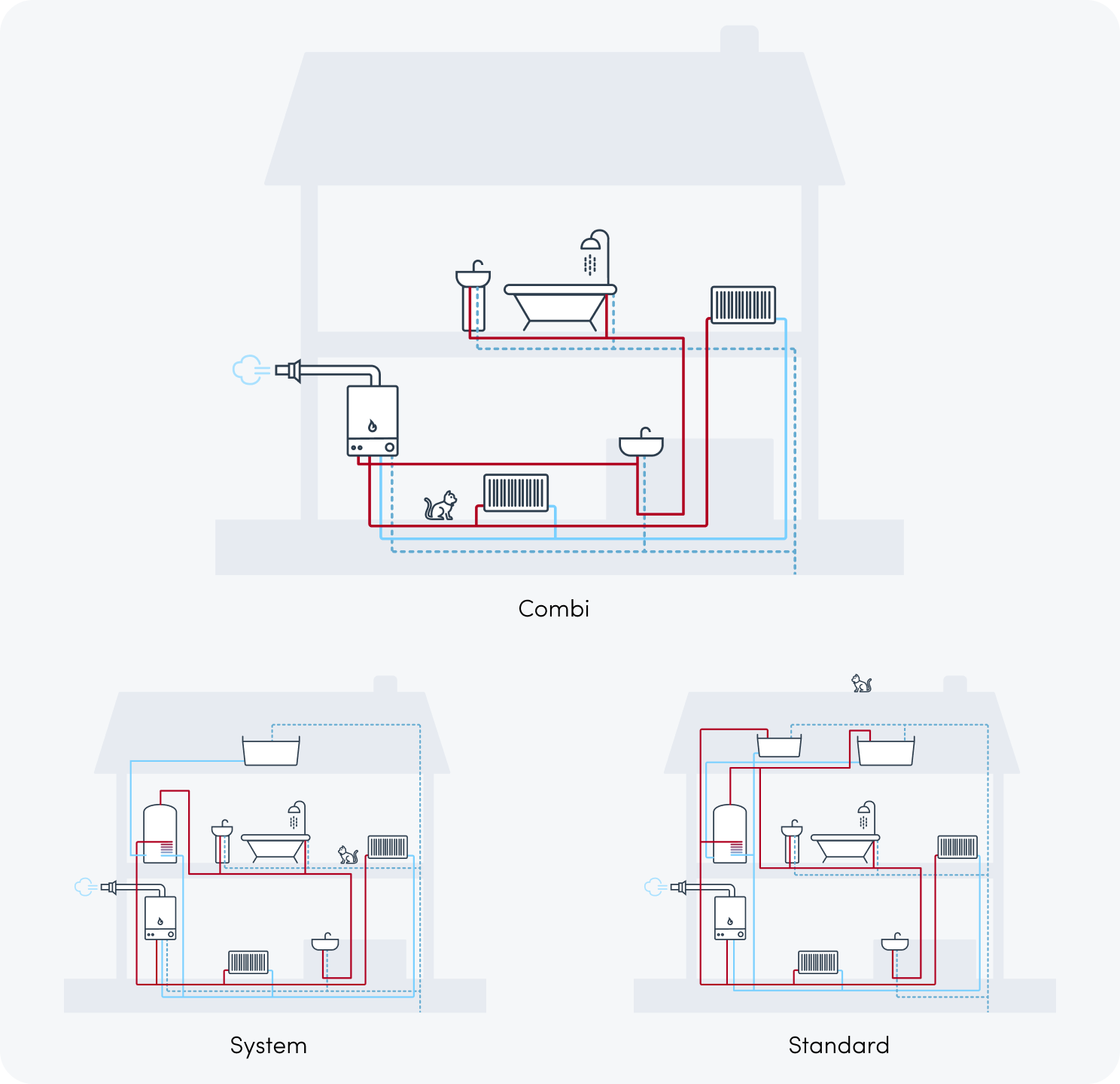Fixed-price combi boiler installation
Plus, use code FREESERVICEPLAN to get a year's free service plan with your new boiler*
Pay monthly options available¹
We'll beat any like-for-like price²
UK's most trusted boiler installers³
Getting a combi boiler with BOXT
Discover
Answer a few questions about your home online to get a fixed price quote in minutes
Choose
Get combi boiler recommendations based on your answers, then choose your boiler and payment option
Installation
A BOXT Gas Safe registered engineer can install for you the next working day if ordered before 3pm
Maintain
Keep track of your install with the BOXT app, and find all your important documents in one place
Why choose a combi boiler?
Combi boilers are a popular choice for many homes. They use the mains water to provide heating and hot water almost instantly, eliminating the need for large tanks and containers. This is great for saving space and is especially perfect for those homes which don’t have extra room for a hot water cylinder.
Combis are also great for giving an unlimited supply of hot water due to the water coming straight from the mains supply. They’re also quick to install, meaning one of our BOXT engineers can have you up and running within a day, in most cases.
Combi boiler costs
If you are upgrading your current combi boiler to a new combi boiler and keeping it in the same location, the total cost, including installation, starts at £1,790 with BOXT.
Or, if you’re upgrading from a standard or system boiler to a combi boiler in the same location within your home, this can cost from £2,690 with installation from BOXT.
If you wish to move the position of your boiler, this will cost between £1,000-£1,400 based on the location.
Add-ons like thermostatic radiator valves can be installed from £40, and smart tech bundles are available from £149.**
Get a new combi boiler + servicing + unlimited repairs
Fixed payments from just £33.35 a month for an all-inclusive plan to get:
- A brand new combi boiler
- Annual servicing by BOXT
- Unlimited boiler repairs
- Free boiler replacement
- No deposit
- No callout fees
Combi boiler servicing from £8.99 per month
Keep your combi boiler in top condition and its manufacturer's warranty valid with an annual boiler Service Plan from BOXT.
Pay just £8.99 per month and spread the cost throughout the year. You'll receive a friendly reminder just before it's due, allowing you to schedule it on a day that suits you.
Flexible ways to pay
Spread the entire cost on selected boilers with up to 48 payments at 0%
Finance from 12-120 months
All-inclusive worry-free BOXT Life boiler plan from £33.35 a month
120 month boiler plan
All major credit and debit cards are accepted so you can pay in full today
Pay today
What's included in your combi boiler installation from BOXT?
All installation and labour costs included in your fixed price, so the price you see is what you'll pay
Up to 12 year manufacturer-backed warranty, that we register for you
12 month workmanship guarantee, covering all work carried out by our engineer for a full year after installation
System flush, to ensure your heating system is in the best health possible for your new combi boiler
Magnetic filter, to keep your new combi boiler healthy and efficient for longer
Carbon monoxide alarm, helping to keep you and your family safe
Wireless thermostat, to easily control your heating on a schedule that works for your home
Benefits of a combi boiler
A-rated
New modern boilers have an energy efficiency rating of A
Highly efficient
Modern combi boilers are A-rated for efficiency - so less energy is wasted producing heating and hot water
Instant hot water
Not needing a water tank, a combi boiler can heat up your water instantly
Space saving
Unlike system or standard boilers, combi boilers don't need separate water cylinders or tanks
Suitable for most homes
80% of the UK has a combi boiler, recommended for 2-3 bedroom homes
Cheaper to install
Because they need fewer external components, combi boilers are often cheaper to install and maintain
See what our customers say
Combi boiler brands
Choose your new combi from a range of reputable, reliable boiler brands
Got questions about combi boilers?
BOXT are here to help with your combi boiler questions
What is a combi boiler?
A combi boiler, short for combination boiler, is a type of boiler that can provide heating and hot water all from one unit. They get their name as they combine all the elements of a traditional heating system in one, so unlike a system or standard boiler, with a combi boiler you don’t need separate water tanks or cylinders.
Because they provide an all-in-one solution for heating and hot water, combi boilers are incredibly popular, with around 80% of all boilers in the UK being gas combi boilers.
Combi boiler pros and cons
| Advantages of a combi boiler | Disadvantages of a combi boiler |
| They’re highly energy efficient, and can help to lower your home’s annual heating bills, hot water bills, and carbon footprint. | They rely on the mains pressure to deliver water efficiently throughout a home, as they don't have a storage system. |
| They’re cheaper to buy, install, run, and maintain than standard or system boilers. | They're usually limited to supplying hot water to one tap at a time. This explains why a hot shower may run temporarily cold, when another person turns on another hot water tap. |
| They provide an unlimited amount of instant hot water. This is because they’re connected to mains water pressure and not a hot water tank. | They don’t incorporate an immersion heater. So if the boiler stops working, you may be without central heating or hot water until it is repaired. |
| Combi boilers are more compact than standard or system boilers, as they don't require space for a water cylinder. | |
| There are fewer components to fit when installing a new combi boiler, unlike standard or system boilers. This can make the process quicker and easier. |
What size combi boiler do I need?
This depends on your home's average water usage, based on the number of radiators, baths, and showers. This chart shows a rough outline of what you can expect.
|
Combi boiler size |
Number of radiators |
Number of baths and showers |
|
25kW |
1-10 |
1 |
|
30kW |
10-15 |
1-2 |
|
35kW |
15-20 |
2+ |
FAQs
Combi boiler installation with BOXT
Ready to find your new combi boiler?
*Only one promo code can be used per order. Service Plan is free for 12 months then automatically renewed at £8.99 a month for homeowners or £11.99 for landlords, unless cancelled. Offer ends 31st March, 2026. Click here for full Terms & Conditions of Free Service Plan offer.
¹Finance available subject to status. Learn more about finance options here. BOXT is a broker not a lender.
²Click here to learn more about the BOXT Price Match Promise.
³Most trusted based on the highest proportion of five-star Trustpilot reviews against direct competitors.
**All prices are correct as of October 2025.




